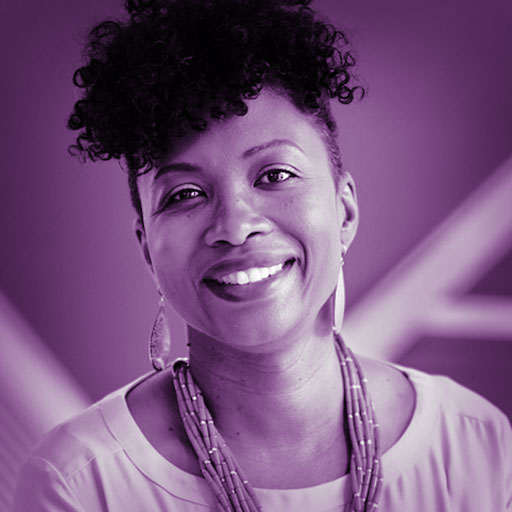Episode 93: Black Women’s Health Imperative
It’s Black History Month, and while we should always be thinking about the current climate of racial inequality, February reminds us of how far we have come and how very far we still need to go.
One especially urgent matter that you’ll hear about today is implicit bias towards Black women in healthcare. Right now, a Black woman with cancer is 40% more likely to die than a White woman, and similar statistics apply to other areas in health like heart disease and pregnancy. As a result, seeking care from a physician or professional can be a terrifying experience for a Person of Color. How can we change our system to reflect a more diverse and caring society?
This episode features Dr. Kanika Harris of the Black Women’s Health Imperative (BWHI), an organization that addresses the pressing health policy issues facing Black women and girls nationwide through youth education, advocacy movements, and signature programs. Dr. Harris will talk about anecdotes from her own pregnancy, offer advice on how to advocate for yourself, and explain special BWHI programs like their college campus initiative, My Sister’s Keeper.
Progyny also hosted a Fertility Education Webinar on Infertility in the Black Community: Understanding Your Health Conditions and Finding the Right Doctor. Tune in to see how you can get involved with BWHI and create a brighter future of equality.
Guest: Dr. Kanika Harris, Black Women’s Health Imperative
Host: Dan Bulger
Be sure to connect with the Black Women’s Health Imperative (BWHI) on their website, Instagram, Twitter, Facebook, and YouTube. You can also support Dr. Harris’s documentary, Listen to Me, through the project’s website.
For more information, visit Progyny’s Podcast page and Progyny’s Education page for more resources.
Be sure to follow us on Instagram, @ThisisInfertilityPodcast and use the #ThisisInfertility.
Have a question, comment, or want to share your story? Email us at thisisinfertility@progyny.com.
Here are some highlights from this episode:
What is Black Women’s Health Imperative (BWHI)?
5:13–6:05
Dan Bulger: Black Women’s Health Imperative (BWHI) was formerly called National Black Women’s Health Project. And their mission is clear.
Dr. Kanika Harris: Its mission is really to lead and solve the most pressing issues that affect Black women and girls in the US. They do this through investments and evidence-based strategy delivering both new programs and advocacy programs promoting policies. It’s also the only national organization that focuses on the physical, mental, and financial health of the 21 + million Black women living in the United States. We are dealing with implicit bias, we’re dealing with narratives about race that are generations old, that are, frankly very dangerous, that make it very dangerous to be a Black woman in the healthcare system in the United States right now.
Implicit Bias in Healthcare
5:19–8:06
Dr. Kanika Harris: I think once I started becoming a mom…it became a very scary reality for me. For example, giving birth in a hospital for Black women right now in the US is not only scary, but life threatening. If you get cancer, you’re 40% more likely to die than a White woman. Same similar statistics, if you have heart disease, you’re more likely to die than a White woman. Doctors are less likely to believe you if you say you’re in pain and need medication. Your stereotype is that you’ll get addicted to this drug, or you’re asking because you want to be on this drug. And it’s not really because you’re in pain. I remember my mom being extremely sick, she was in the hospital, and she called me in the middle of the night to say her IV drip was burning her. I had never experienced my mom in that extreme vulnerable place calling me because she didn’t know what to do and no one was listening to her. She said it felt like this IV was like fire through her veins. My mom, someone who can stand up for herself, very articulate, very well educated, and to hear her in this vulnerable place where she’s alone and can’t get help is really scary. And that’s the reality of the healthcare system.
How Doctors Should Act
14:08-15:53
Dan Bulger: Dr. Harris just said something that we say quite a bit here, ‘be your own advocate.’ But of course, sometimes that’s asking a lot. It can’t, well, it shouldn’t anyway, always fall on the patient to advocate for themselves. We have doctors to guide us. That’s their function and we can’t expect every patient to understand enough to truly advocate for themselves. Some of this has to fall on doctors. So we asked Dr. Harris what she would say to a roomful of physicians today.
Dr. Kanika Harris: When Black women walk into your office, they are coming with a lot. They are hoping that you see them for who they really are. They are hoping that when they walk into that office, you don’t give them a litany of stereotypes or statistics about Black women, their reproductive systems, what’s possible, what’s not possible. They hope that you just take them as a separate entity, that you are looking at them as they are. They’re hoping you don’t give them these old narratives and tropes about black genes being inferior, and somehow turn that into the narrative of where they are right now with their fertility. We ask that you see whatever little glimmer of hope that they have in the situation they’re in, that you fully support and see them and have compassion for them. Let them ask all the questions that they need to ask. Give them space. Give them time. If there’s anyone that you give a few more minutes to, I hope it’s that Black woman that walks into your office when you understand what’s facing her outside of the office.

Host
Dan has been in the healthcare industry for the last six years as a multimedia content producer. Better known as ‘Video Dan’ he as interviewed numerous doctors, patients and other experts in the world of fertility. He’s also the producer for this podcast, This is Infertility. On a personal note Dan’s parents started fostering kids when he was four years old, and he considers himself a proud older brother to over 100 foster children.

Guest
Kanika Harris, PhD, MPH, is a Health Equity Strategist and Reproductive Justice Advocate for the Black Women’s Health Imperative. Since 2014, she has also been an Independent Consultant for American Public Health Association. Her expertise lies in Public Health Equity Strategy, specifically in the Nonprofit space.
Music From This Episode:
Artist: Jason Shaw
Track: ACOUSTIC MEDITATION
URL: https://freemusicarchive.org
Artist: Jahzzar
Track: Sleepin
URL: https://freemusicarchive.org
Artist: Lee Rosevere
Track: Small Steps
URL: https://freemusicarchive.org
Track: Quizitive
URL: https://freemusicarchive.org
Track: Making a Change
URL: https://freemusicarchive.org
Track: The Secret to Growing Up
URL: https://freemusicarchive.org



